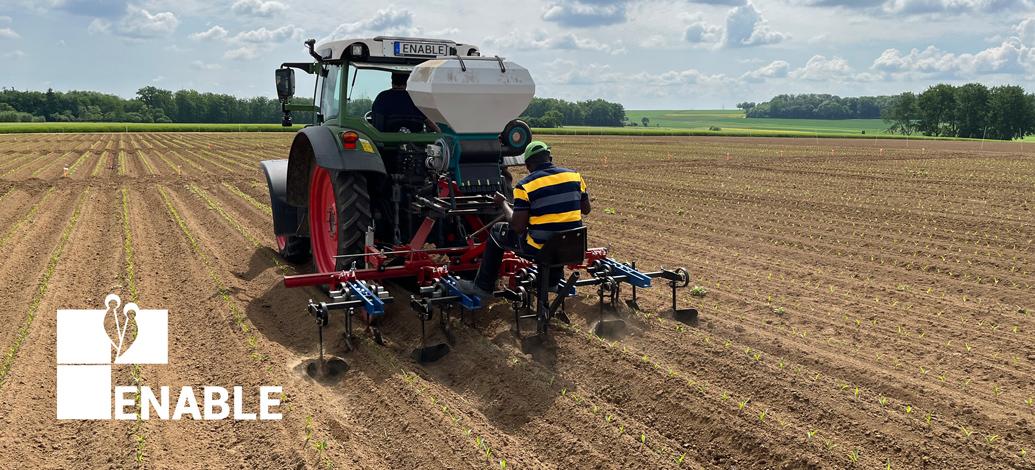
Climate-resilient agriculture through data, sensor technology, robotics, 5G, and edge cloud in arable farming
In ENABLE, innovative management methods for arable farming will be tested to increase the resilience of plants and soils and thus ensure the long-term productivity of agriculture even under changing climatic conditions. Two different experiments will be used to test technologies to demonstrate the potential of sensor technology, robotics (especially in the field of hacking technology), 5G networks, and decentralized data processing.
The first experiment focuses on ridge cultivation technology, which allows the climate-resilient cultivation of maize, sunflowers, soy, and sugar beet. The second experiment promotes knowledge exchange between relevant stakeholders (research and commercial enterprises). As climatic changes and biodiversity are interlinked, systems for weed and plant detection and machine control are analyzed and compared to identify methods that help to reduce the use of pesticides on the one hand and selectively preserve valuable arable weeds on the other.
In both experiments, data is recorded using field and machine sensors. The information is processed in real time, on the machines as well as in the downstream data processing step. The field trials are conducted at the University of Hohenheim's Ihinger Hof.
The work in ENABLE is designed in such a way that the systems and technologies to be researched are considered from the perspectives of (1) artificial intelligence and algorithms, (2) sensor technology, data streams, and platform integration, (3) further development of decision-making systems for farming and (4) the implementation of experiments. ENABLE works on environmental, economic, and technological goals and contributes to at least 6 of the 17 UN Sustainable Development Goals.
The central research question of the project is: How can climate resilience in agriculture be increased through the use of sensor technology, robotics, optimized data processing, and forecasting models?
The consortium consists of Reutlingen University, the University of Hohenheim and os4os.
Contacts:
Prof. Dr. Dieter Hertweck
Herman Hollerith Center
Reutlingen University
dieter.hertweck [at] reutlingen-university.de
Prof. Dr. Roland Gerhards
Institute for Phytomedicine (360)
University of Hohenheim
Department of Herbology
roland.gerhards [at] uni-hohenheim.de
Annette Kunz-Engesser
open science for open societies - os4os gGmbH
annette [at] os4os.org
Duration: 15.02.2024 - 14.02.2027
